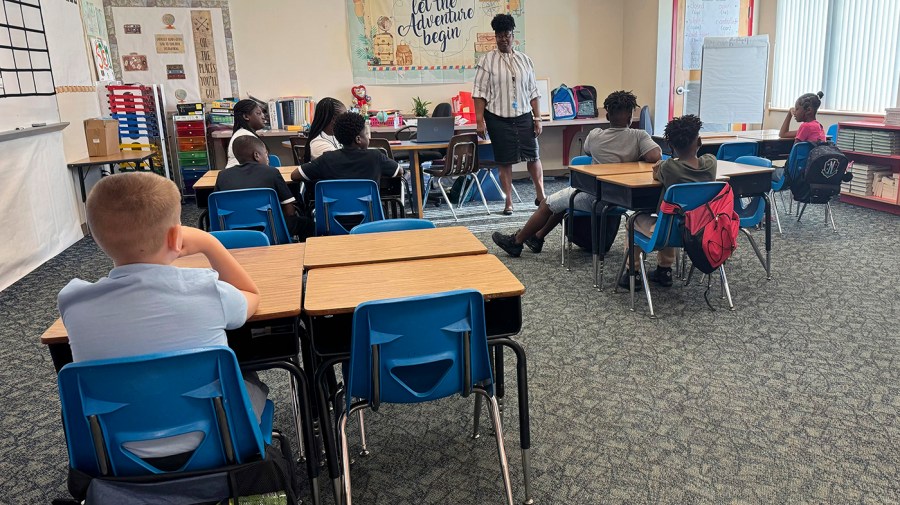
Voters in states including Florida, Colorado and Kentucky face major decisions on their education systems on Tuesday.
Activists and groups on both sides of issues ranging from school choice to partisan school board races have poured millions of dollars into the fights, which often generate fewer headlines than other ballot measures on abortion or marijuana.
But Election Day offers a rare opportunity for voters to decide on these education issues head on.
“Even though the ballot initiatives are different in different states […] At the core of all of it is ensuring that we have a well-funded public education system that is designed for all of our students,” said Becky Pringle, president of the National Education Association (NEA).
In Kentucky, Colorado and Nebraska, voters are making decisions that could help or inhibit school choice programs, which have done well among state lawmakers but have yet to face a real challenge at the ballot box.
Nebraska’s initiative seeks to repeal a law that would allow public tax dollars go to private schools. In Colorado, a decision will be made to enshrine school choice as a right in the state constitution, while Kentucky wants to change its constitution to allow choice programs.
“Every child in every neighborhood, of every color, class, and background deserves a school that will help them succeed,” Kentucky Sen. Rand Paul (R) told The Courier Journal.
“Educational freedom, as proposed by Amendment 2, ensures students are able to learn in the best environment possible and breaks the poverty cycle that far too often keeps children from fulfilling their potential,” Paul added.
In Florida, where education issues regularly make national news, Amendment 1 will determine if future school board elections will be partisan.
Only four states currently have laws requiring that school board candidates be identified by party.
“I’m just not in favor of even going down a road to start politicizing school board races. And if we’re all honest, we know what happens when we politicize things. We begin to make decisions based on party, instead of focusing on people,” said Florida state Sen. Rosalind Osgood (D).
Meanwhile, four states — North Dakota, North Carolina, Washington and Montana — will be electing new state education superintendents.
And in Washington, significant attention is being paid to Initiative 2109, which would repeal the capital gains tax on the sales of stocks or bonds worth more than $250,000, which goes toward schools in the state.
“We are focused on Washington state, where we know they there is a ballot initiative that we are fighting hard against […] we believe that the billionaires” should “pay their fair share,” Pringle said.
She added that “that particular tax has raised money” for “much needed construction projects and modernizing buildings, put in HVAC systems to make sure that our students have healthy air to breathe. All those things have been done.”
A Cascade PBS/Elway poll found 56 percent of respondents said they would not vote to repeal the capital gains tax, while around 29 percent said they would and 15 percent are undecided.
In Missouri, voters will decide whether to legalize sports betting, with a 10 percent wagering tax on revenues and licensing fees set to go to educational institutions if the amendment is adopted.
Massachusetts voters, meanwhile, will take up the value of a high school exit exam. With Question 2, voters there will decide whether or not to end the MCAS, a state test that high schoolers need to pass for graduation.
While education issues can get overshadowed in a major election where voters are deciding who will control the White House, Senate and House, Pringle said her group is working hard to make sure the ballot measure don’t get ignored.
“One in every 100 Americans is a NEA member,” she said.
“They’ve been making phone calls across states, they’ve been talking to people to make sure that they read all the way down their ballot, that they turn their ballot over, that they know how important those ballot initiatives are to our students. So we have included that in all of our messages, in the conversations that educators are having with voters and with educators all over this country, and we’re making sure that we provide that information to them,” she added.

